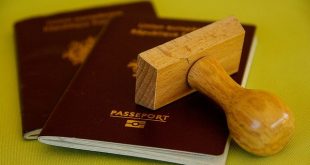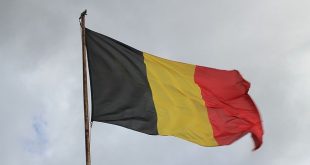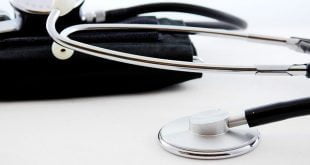Studying dentistry in Belgium offers an exciting opportunity for students seeking a career in oral health. Belgian universities often do well in global rankings. And its dental education programs meet some rigorous standards. This article takes a closer look at the admissions process, program structure, career opportunities, and other aspects of studying dentistry in Belgium.
Table of Contents
Why Study Dentistry in Belgium?
Studying dentistry in Belgium attracts a great deal of interest from Belgian, European and foreign students alike. Considered to be among the most prestigious in Europe and the rest of the world, dental schools in Belgium offer programs of the highest standard, even on a global scale. However, access to these programs remains highly selective.
Dental studies in Belgium require students to pass an entrance exam in order to gain access to undergraduate programs in dentistry and pharmacy. This rigorous selection process ensures the quality of students admitted to these prestigious programs. Keep in mind that competition is intense, with only 30% of places reserved for foreigners.
Unlike a lottery system, admission is based on the results of the entrance exam. Non-Belgian students are therefore in a better position to enroll within the limits of the available places. This approach strengthens the quality of the student body. It means that only the best students who are determined to succeed in the demanding field of dentistry in Belgium are admitted.
Admission in Bachelor and Master’s in Dentistry in Belgium
To enroll in dentistry studies in Belgium, you must meet the following requirements:
- Have your high school diploma or equivalent in hand, with a solid academic record to back it up
- A good grade point average of at least 13/20
- Have applied to the Belgian Ministry of Education in Brussels for equivalence of your diploma (bac). This request must be made no later than July 15 of each year, just after you have received your final exam results.
- Have applied for admission to the university of your choice.
- Pass the entrance exam and be among the top 30%.
- Meet the other conditions imposed by the university of your choice
Entrance Examination
Admission to undergraduate studies in human medicine and dental sciences in Belgium requires an entrance examination. And since 2017, a 30% quota for non-residents has been introduced. It is therefore recommended for all foreign applicants to have a plan B in case you don’t pass the exam.
Registration for the exam is exclusively online on the ARES (Academy for Research and Higher Education) Belgium website, and takes place between June and July each year.
In addition, when you register, you must indicate the course you are applying for and the university of your choice. Foreign students must also indicate that they are “non-resident”.
The entrance examination to study dentistry in Belgium consists of a two-part written test:
- A knowledge and understanding test in scientific subjects (biology, chemistry, mathematics and physics)
- A test of communication and critical analysis of information (communication, empathy, ethical reflection, reasoning and critical analysis)
To pass the exam, candidates must have an average mark of 10/20. However, a mark of less than 8/20 in any of the tests is disqualifying.
To increase your chances of success, Belgian universities often offer distance or in-person preparation courses. Check the website of the university you wish to attend to see if it offers such courses.
Lastly, the exam is generally held around mid-August in the Brussels region.
Registration Procedure
Once you’ve passed your entrance exam and secured your pre-admission application to the university of your choice, the next step is to apply for the equivalent of your high-school diploma in Belgium. We’ll talk a bit more about how to do this below.
But when it comes to the administrative procedures for studying dentistry in Belgium, here are the main steps:
Read also our guide to university application and admission in Belgium
Apply to the Dental School of Your Choice
Generally speaking, each higher education institution in Belgium has its own department responsible for registering and admitting students. Once you’ve found the contact details of the institutions you’re interested in, visit their official websites. Finally, contact them to request the list of documents you’ll need to compile your application file.
Required documents usually include transcripts from your college or university. If you’re applying right after high school graduation, you’ll also need to send certified copies of your grades from the last two years of high school. You’ll also need an academic resume and a statement of purpose. Depending on the institution, these documents may be sent electronically or by regular mail.
Be sure to follow each institution’s specific procedures for submitting your file correctly.
Receive your Admission Letter
Within a month of receiving your application, you should normally receive a letter of admission or refusal. If you come from a non-French-speaking country, you may need to take language tests.
This is also the case if you are enrolling in a dental program in English in Belgium. In this case, you should provide the results of your TOEFL or IELTS test proving that you are proficient to follow the program.
Your registration confirmation letter will contain useful information for the rest of the process. There are mainly instructions for payment of the registration fee.
Degree Recognition
Any secondary school leaving diploma other than the Belgian Certificat d’Enseignement Secondaire Supérieur (CESS), the European Baccalaureate issued by the Board of Governors of the European Schools, or the International Baccalaureate (IB) issued by the International Baccalaureate Office in Geneva, requires a request for equivalence.
This request is usually made to the equivalence service of the Wallonia-Brussels Federation. This must be done before July 15, just after you receive your final exam results.
Dentistry Study Fees
It goes without saying that the cost of a university year can vary greatly from one institution to another. It also varies by region. You can consult our guide on the cost of living and studying in Belgium for more. Generally speaking, however, it ranges from 5,000 to 12,000 euros per year. When it comes to entrance exam fees, you’ll have to pay 30 euros.
Please, keep also in mind that tuition fees for dental studies are a little higher in Belgium, as elsewhere. Contact your university to find out about these costs.
How Long are Dental Courses in Belgium?
The dental curriculum in Belgium lasts 5 years, i.e. 300 ECTS, and is divided into 2 cycles. The first cycle lasts 3 years and consists of acquiring the human and technical skills required for the next cycle. The second 2-year cycle consists mainly of clinical internships.
The first year of the curriculum consists of lectures in fundamental sciences. Then, in the second year of undergraduate studies, students take part in observation internships. These internships then become increasingly practical, preparing students for clinical internships in the graduate program. In addition, this first cycle will serve to familiarize future dentists with technical acts on the basis of theoretical courses.
Graduate studies in dentistry in Belgium will enable students to :
- Put in practice and extend undergraduate knowledge and techniques in the clinical setting
- Learn different techniques in restorative dentistry, implant dentistry, prosthetics, periodontics and simple surgical techniques
- Deepen their learning through courses, seminars, practical work and, of course, clinical internships.
To earn their master’s degree in dentistry, students must prepare a thesis. They must then take an additional 1 to 3-year master’s degree in specialization to obtain the professional title of dentist. They can choose between becoming a general dentist (DG), orthodontic dentist (DSO) or periodontal dentist (DSP).
Best Universities for Dentistry Studies in Belgium
Several institutions in Belgium offer renowned dentistry programs, each with its own distinctive features. Here is a non-exhaustive list of universities offering dental medicine programs, along with some specific features:
UCL’s School of Dentistry and Stomatology
The Dental School of UCL (UC Louvain) offers outstanding dental training, combining patient care and precision techniques. The Bachelor’s program (3 years) prepares students for the Master’s in Dental Sciences (2 years), which focuses on clinical internships.
Academic success in this program requires a wide range of cognitive skills. Independent professional practice, on the other hand, requires additional training (Master of Specialization). Practical work during the 3-year Bachelor’s degree develops students’ manual dexterity, which is essential in dentistry.
Training facilities include the École de Médecine Dentaire et de Stomatologie (EMDS) and the Institut de Médecine Dentaire et de Stomatologie (IMDS), located at the St-Luc university clinic (CUSL). The EMDS has auditoriums and a practical room used for a variety of courses. A variety of exercises, simulator work and interaction with patient prepare students for the specificities of each dental discipline.
Find out more about this dental school in Belgium by visiting its official website.
School of Dental Medicine at ULB (Université Libre de Bruxelles)
The Faculty of Medicine of ULB offers studies in dental sciences, with French as the language of instruction. As with all programs in this field, students follow a 5-year curriculum: 3 years for a Bachelor in Dental Sciences, followed by 2 years for a Master’s degree.
The first part of the Bachelor’s program focuses on basic sciences such as physics, chemistry, mathematics and biology, as well as an introduction to anatomy and an approach to medical practice. Subsequently, studies focus on morphological sciences, biochemistry, physiology, microbiology and immunology, as well as simulations of basic dental procedures.
The MSc in Dental Sciences trains graduates to become competent dental practitioners. They develop their skills both professionally (updating knowledge, precision, scientific rigour, etc.) and personally (interpersonal skills, empathy, stress management, etc.).
To learn more, visit the website of ULB’s faculty of medicine.
Faculty of Dentistry, University of Liège
At the Faculty of Dentistry of the University of Liège, dentistry is an integral part of global medicine. The school offers training in the prevention and effective treatment of oral pathologies and disorders of the masticatory apparatus. The curriculum comprises a Bachelor’s degree followed by a Master’s degree in Dental Sciences.
The Bachelor’s degree begins with a “dental” approach in the first four months. The training emphasizes the basic sciences, with courses in first aid, biology, physics and chemistry. Practical dentistry courses include pre-clinical and laboratory exercises, offering early immersion in dental practice.
The unique Master of Dental Sciences combines general dentistry clinical internships, specialized internships and multidisciplinary interactive seminars. Incorporating CRA (Clinical Reasoning Apprenticeship) sessions, the Master’s program aims to train competent, specialized professionals in dental practice.
Visit the dental school website to find out more.
Read also our ranking of the best universities in Belgium for international students.
This post is also available in fr_FR.




 Aljawaz Your guide to study abroad
Aljawaz Your guide to study abroad










